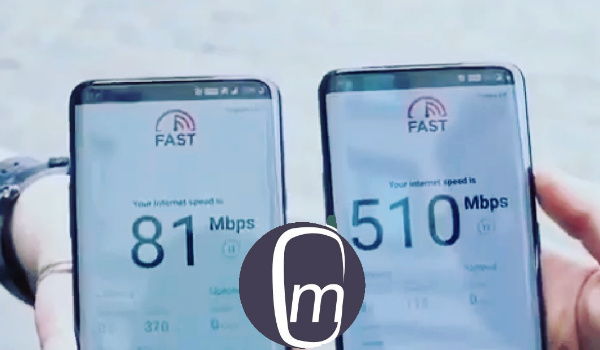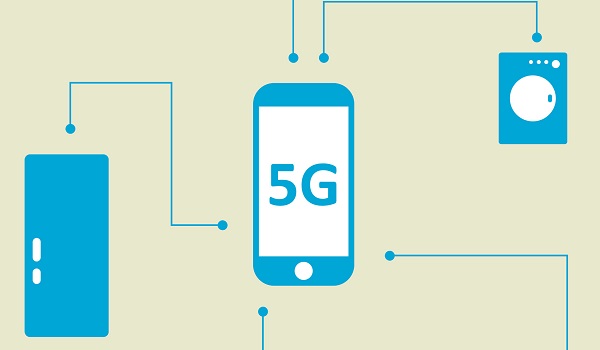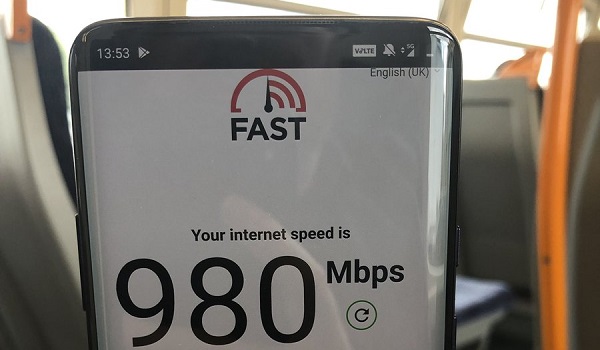There is a lot of buzz building around 5G technology. It is the 5th generation of mobile internet technology and will deliver many times the speed of 4G LTE. Progress is good and we must embrace it.
What is 5G?
5G refers to the next generation of mobile technology after 4G. It offers much faster speeds and a more robust service than older mobile technologies.
5G vs 4G: The difference between 4G and 5G speeds
The theoretical download speeds for 5G connections are in the range of 1-20Gbps. This picture is a real life depiction of the difference between 4G and 5G speeds: For the heaviest internet tasks that you and the average mobile consumer engages in, you do not need more than 5Mbps in internet speed. And 4G delivers that already. And 4G technology keeps improving, with some of the most recent capable of speeds up to 2Gbps. Whether you are downloading a game or streaming a 1080p video, 5Mbps is more than adequate. Of course, heavier downloads will run faster with faster internet, so nobody is going to frown at a 30Mbps download speed. Again, 4G has you covered there too. What do you really need 1Gbps internet speed for? I can tell you: for the future.
5G Is The Future
Have you noticed how higher quality video formats keep being created? Or how apps keep getting heavier with each passing year? Media just gets heavier and heavier, and we can expect that trend to continue. So, in another few years, we will have something better than 4k video. We will have heavier apps and media formats. Virtual reality and augmented reality will require more robust and faster internet speeds. Self-driving cars, flying taxis and delivery drones will also be exchanging information all the time. 1Gbps on a 5G network will be essential then.
When is 5G Coming?
Having said that, you are probably asking, “When will 5G be available?” or “How soon is 5G coming?” There are a number of components to this. The first has to do with 5G networks. Another is about the devices – routers, modems and smartphones. The first 5G smartphones and modems are already in the market now (mid 2019). So, how about the networks? How soon will we see the first 5G networks and where? The world’s first commercial 5G network was launched in Qatar in May 2018 [1], followed by 5G networks in Finland and Estonia a month after. Other countries like Germany, Russia, South Korea, and Spain have pre-commercial demonstration networks up and running already too. Others like the Philippines, Bangladesh, and Indonesia are at different stages of rolling out 5G networks. US carriers like Sprint and Verizon are already rolling out their 5G networks. European mobile networks are jumping in too. Switzerland’s first commercial 5G network was launched in April 2019. The UK went live with 5G in May 2019. On the 30th of May 2019, Tom Warren, Senior Editor at The Verge, tweeted this picture of a 5G speedtest in a moving train in the United Kingdom [2]: That is what 5G speed looks like. Of course, as more users get on it, you may record more of 200 Mbps to 500 Mbps, but that is still much faster than 4G speed. The difference between 4G and 5G speeds is huge. In June 2019, Italy joined the list of countries with a commercial 5G network with the launch of 5G service in five of its big cities – Milan, Turin, Bologna, Rome, and Naples. In the USA, T-mobile rolled out its 5G services in 6 cities across the country – Atlanta, Cleveland, Dallas, Las Vegas, Los Angeles, and New York City – as the first coverage areas [source]. On the 3rd of July 2019, Vodafone UK switched on its 5G network, with initial coverage in seven cities: London, Glasgow, Manchester, Liverpool, Birmingham, Cardiff, and Bristol
The Transition From 4G To 5G
For now, 4G is all you need, and it is all that most people will get for years to come. 4G has been around for about a decade (the first LTE network was launched in December 2009), yet many countries are just getting 4G LTE networks. Even in the most advanced mobile markets, 4G is yet to be ubiquitous. Plus, the first 5G networks will run on the same infrastructure that existing 4G LTE networks use. Infrastructural capacity will be upgraded over time. So, yes; for some more years to come, 4G is all you are likely to get. The good news is that 4G is all you really need for now anyway. That doesn’t mean you shouldn’t be excited at the prospects of 5G and of tasting the delightsome speeds and capaity that it offers.
References
Don’t miss our reviews.Join our WhatsApp Group, to be notified of the most important articles and deals,Follow us on Instagram, Facebook, Twitter, and YouTube.


